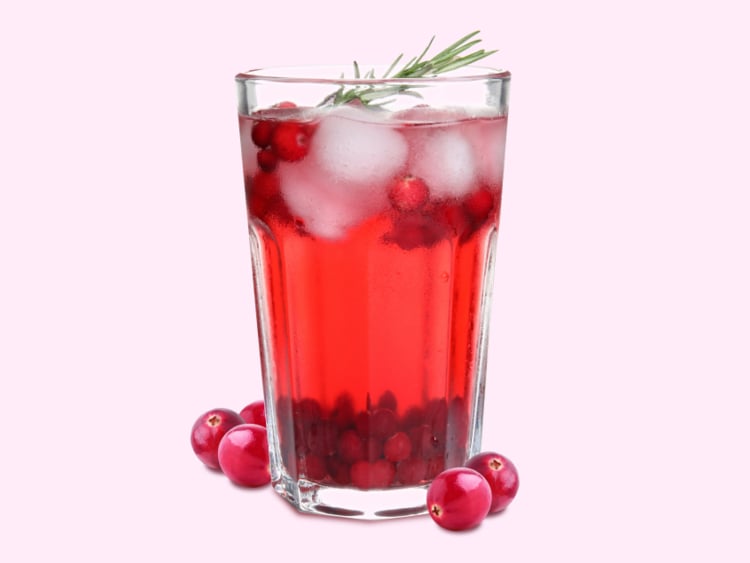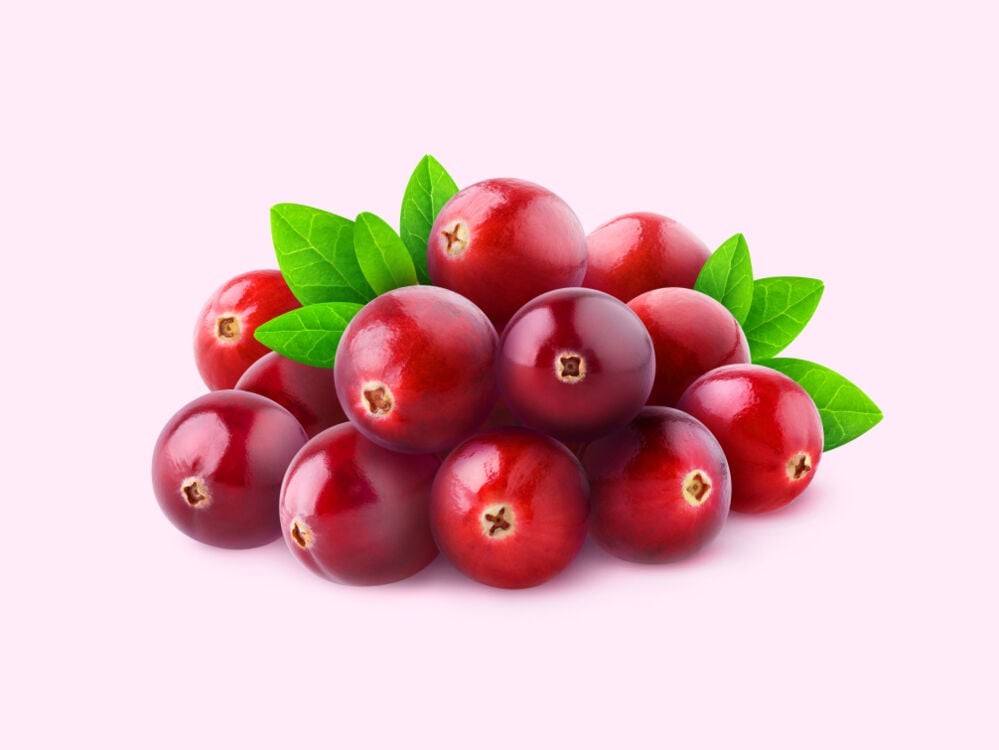Cranberry juice has gained a reputation for soothing the discomfort associated with UTIs. But is this a health hack or myth? A urologist explains it all.
-
Tracking cycle
-
Getting pregnant
-
Pregnancy
-
Help Center
-
Flo for Partners
-
Anonymous Mode
-
Flo app reviews
-
Flo Premium New
-
Secret Chats New
-
Symptom Checker New
-
Your cycle
-
Health 360°
-
Getting pregnant
-
Pregnancy
-
Being a mom
-
LGBTQ+
-
Quizzes
-
Ovulation calculator
-
hCG calculator
-
Pregnancy test calculator
-
Menstrual cycle calculator
-
Period calculator
-
Implantation calculator
-
Pregnancy weeks to months calculator
-
Pregnancy due date calculator
-
IVF and FET due date calculator
-
Due date calculator by ultrasound
-
Medical Affairs
-
Science & Research
-
Pass It On Project New
-
Privacy Portal
-
Press Center
-
Flo Accuracy
-
Careers
-
Contact Us
Does cranberry juice help a UTI? What you should know


Every piece of content at Flo Health adheres to the highest editorial standards for language, style, and medical accuracy. To learn what we do to deliver the best health and lifestyle insights to you, check out our content review principles.
The constant need to pee, a burning sensation when you do make it to the toilet, and pelvic cramping and pain are all symptoms associated with urinary tract infections (UTIs). So it’s not surprising that we’re all looking for a quick way to relieve the discomfort.
Drinking cranberry juice has long been hailed as an at-home remedy for UTIs. But does a glass of cranberry juice really help UTIs? Or is it a myth? And if not, how and why does cranberry juice help a UTI?
Below, a urologist explains exactly what UTIs are, the symptoms associated with them, and why cranberry juice has been linked to UTIs.
It’s important to note that if you start to experience any of the symptoms associated with UTIs, you should speak to your health care provider rather than trying to treat it yourself. It’s crucial to get the care you need.
What is a UTI?
When you hear the term UTI, you might automatically think of a bladder infection (also known as cystitis). However, UTI is just a term used to describe a range of different infections anywhere in your urinary tract. And they’re very common.
If you’ve ever had a UTI, you’re not alone. Research has highlighted that they’re one of the most frequent clinical bacterial infections women face, with 50% to 60% of us experiencing one in our lifetime. In fact, it’s estimated that around 20% to 30% of young women have recurrent UTIs (this is when you experience two or more UTIs within a six-month period or three within a year).
Dr. Tolulope Bakare, MD, urologist and Flo medical board member, says, “A UTI is just an infection of the urinary system, anywhere from the bladder to the tubes connecting the kidneys, which are called the ureter, to the kidney itself — and even in the little tracts that empty the bladder, called the urethra.”
Take a quiz
Find out what you can do with our Health Assistant
A UTI usually occurs when bacteria gets into the urinary tract (usually from the bowels) and causes an infection. In some cases, it can be caused by fungi or, in rare cases, viruses. But Dr. Bakare explains that they’re much more common in women and people with vaginas because we have a much shorter urethra — making it easier for bacteria to get into (and infect) our urinary tract.
Essentially, anything that stops you from being able to empty your bladder fully or flush out bacteria, or that irritates the urinary tract, can cause a UTI.
Does cranberry juice help UTIs? What causes UTIs?
Common causes of a UTI can include:
- Having sex
- Conditions that block the urinary tract, such as kidney stones
- Anything that makes it difficult to fully empty the bladder, such as constipation
- Urinary catheters
- Not drinking enough fluids
- Not keeping the genital area clean and dry
It’s true that some people are more prone to UTIs than others. You’re more likely to experience a urinary tract infection:
- If you’ve had one before
- If you’re pregnant or postmenopausal. This is because your hormones change dramatically at this time, which can affect the growth of bacteria.
- If you have a health condition like diabetes that makes you more prone to UTIs
- If you have a weakened immune system or are undergoing chemotherapy. This can put you at a higher risk of picking up a UTI.
Does cranberry juice help UTIs? UTI symptoms in women
Before we deep dive into the science behind cranberry juice and urinary tract infections, let’s look at the symptoms of a UTI. First up, it’s important to note that as your urinary tract is such a large area, you may experience different symptoms depending on where the UTI is.
In lower tract UTIs (which affect your bladder and urethra), you might experience:
- An urgent need to pee
- An inability to pee more than a few drops, even if it feels like you need to
- Burning or pain in the urethra
- Soreness or cramps in your back, sides, or abdomen
- Cloudy or bloody urine
- Remember that although these symptoms are painful and unpleasant, the majority of lower tract UTIs are really easy to treat.
- Upper tract UTIs, like those in the kidneys, can be more severe. You might experience:
- Fever
- Back pain
- Nausea
- Chills
- Vomiting
While a lower tract UTI may clear up on its own, a kidney infection or upper tract UTI can be more serious, so it’s worth getting checked out if you have any of the above symptoms or are worried.
How do doctors test for a UTI? They’ll ask you to provide a fresh urine sample and then check it for red blood cells, white blood cells, and any bacteria or signs of infection.
Does cranberry juice help UTIs? How and why does cranberry juice help UTIs?
But the big question remains — does cranberry juice actually treat UTIs? Well, that seems to be more myth than science.
“The main reason why cranberry has the reputation it has is because of a compound in it called proanthocyanidin,” Dr. Bakare says. “This can help in preventing UTIs, but not treating them.”
You may have not heard of proanthocyanidins, but they’re known for their health benefits — and you can find them in foods like cranberries, grapes, blueberries, and blackberries.

So a compound in cranberries can help prevent UTIs — but hold on before you reach for the bottle. “For you to get the amount of the compound to actually have an effect, you would have to drink an excessive amount of cranberry juice,” Dr. Bakare explains. Now some companies are putting that compound into a pill instead, to give you a higher concentration.
In fact, a study in the American Journal of Obstetrics and Gynecology found that in a randomized group of patients, those given cranberry juice capsules had a “significantly lower” incidence of UTIs post-surgery.
While these pills can be effective in helping to prevent UTIs, they are probably not enough to prevent infection on their own. “You want to make sure you’re still doing the things like hydrating properly and making sure you’re emptying your bladder on a frequent basis,” Dr. Bakare says.
How to treat a UTI
So if cranberries aren’t the answer, how do you get rid of a UTI?
If you speak to a health care professional and they diagnose you with a UTI, they’re likely to prescribe you a course of antibiotics. This should stop the infection from spreading by stopping the bacteria from growing and multiplying. If the infection is slowed or stopped, it lets your immune system clear the infection.
If you’re pregnant, it’s good to remember that not all antibiotics might be suitable. Pregnant people are often told to avoid nitrofurantoin and trimethoprim-sulfamethoxazole during the first trimester, so make sure to always speak to a medical professional before starting medication to make sure it’s the right choice for you.
If you’re postmenopausal and have recurrent UTIs, Dr. Bakare has some advice: “One of the treatments to prevent recurring UTIs is to estrogenize their vagina again, by giving them estrogen cream.”
Heating pads can help with any cramping and discomfort — and you may want to stay away from certain drinks. Coffee, alcohol, and sodas with citrus juice can all irritate the bladder.
Does cranberry juice help UTIs? The takeaway
So the good news is that although UTIs are common, they are normally very easy to treat with a short course of antibiotics.
But that cranberry juice you’ve been drinking probably isn’t helping you clear it. If you’d like to prevent UTIs, then cranberry pills can help — but make sure you’re clearing your bladder regularly and, of course, you’re staying hydrated. Good advice for UTIs and, let’s be honest, for life in general.


Hey, I'm Anique
I started using Flo app to track my period and ovulation because we wanted to have a baby.


The Flo app helped me learn about my body and spot ovulation signs during our conception journey.


I vividly
remember the day
that we switched
Flo into
Pregnancy Mode — it was
such a special
moment.
Real stories, real results
Learn how the Flo app became an amazing cheerleader for us on our conception journey.
References
Ailes, Elizabeth C., et al. “Antibiotics Dispensed to Privately Insured Pregnant Women with Urinary Tract Infections - United States, 2014.” MMWR. Morbidity and Mortality Weekly Report, vol. 67, no. 1, Jan. 2018, pp. 18–22. Accessed 27 May 2022.
Al-Badr, Ahmed, and Ghadeer Al-Shaikh. “Recurrent Urinary Tract Infections Management in Women: A Review.” Sultan Qaboos University Medical Journal, vol. 13, no. 3, Aug. 2013, pp. 359–67. Accessed 27 May 2022.
“Cystitis.” Mayo Clinic, 14 May 2020, https://www.mayoclinic.org/diseases-conditions/cystitis/symptoms-causes/syc-20371306. Accessed 27 May 2022.
Foxman, Betsy, et al. “Cranberry Juice Capsules and Urinary Tract Infection after Surgery: Results of a Randomized Trial.” American Journal of Obstetrics and Gynecology, vol. 213, no. 2, Aug. 2015, pp. 194.e1–8. Accessed 27 May 2022.
González de Llano, Dolores, et al. “Cranberry Polyphenols and Prevention against Urinary Tract Infections: Relevant Considerations.” Molecules, vol. 25, no. 15, Aug. 2020, https://doi.org/10.3390/molecules25153523. Accessed 27 May 2022.
Habak, Patricia J., and Robert P. Griggs, Jr. “Urinary Tract Infection in Pregnancy.” StatPearls, StatPearls Publishing, 2021. Accessed 27 May 2022.
Mannino, Giuseppe, et al. “Proanthocyanidins and Where to Find Them: A Meta-Analytic Approach to Investigate Their Chemistry, Biosynthesis, Distribution, and Effect on Human Health.” Antioxidants (Basel, Switzerland), vol. 10, no. 8, July 2021, https://doi.org/10.3390/antiox10081229. Accessed 27 May 2022.
Paduch, Darius A. “Viral Lower Urinary Tract Infections.” Current Urology Reports, vol. 8, no. 4, July 2007, pp. 324–35. Accessed 27 May 2022.
“Urinary Tract Infection (UTI).” Mayo Clinic, 23 Apr. 2021, https://www.mayoclinic.org/diseases-conditions/urinary-tract-infection/diagnosis-treatment/drc-20353453. Accessed 27 May 2022.
“Urinary Tract Infections in Adults.” Urology Care Foundation. https://www.urologyhealth.org/urology-a-z/u/urinary-tract-infections-in-adults. Accessed 27 May 2022.
“Urinary Tract Infection (Recurrent): Antimicrobial Prescribing NICE Guideline.” The National Institute for Care and Health Excellence, 2018, https://www.nice.org.uk/guidance/ng112/documents/draft-guideline. Accessed 27 May 2022.
“Urinary Tract Infections (UTIs).” NHS, https://www.nhs.uk/conditions/urinary-tract-infections-utis/. Accessed 27 May 2022.




